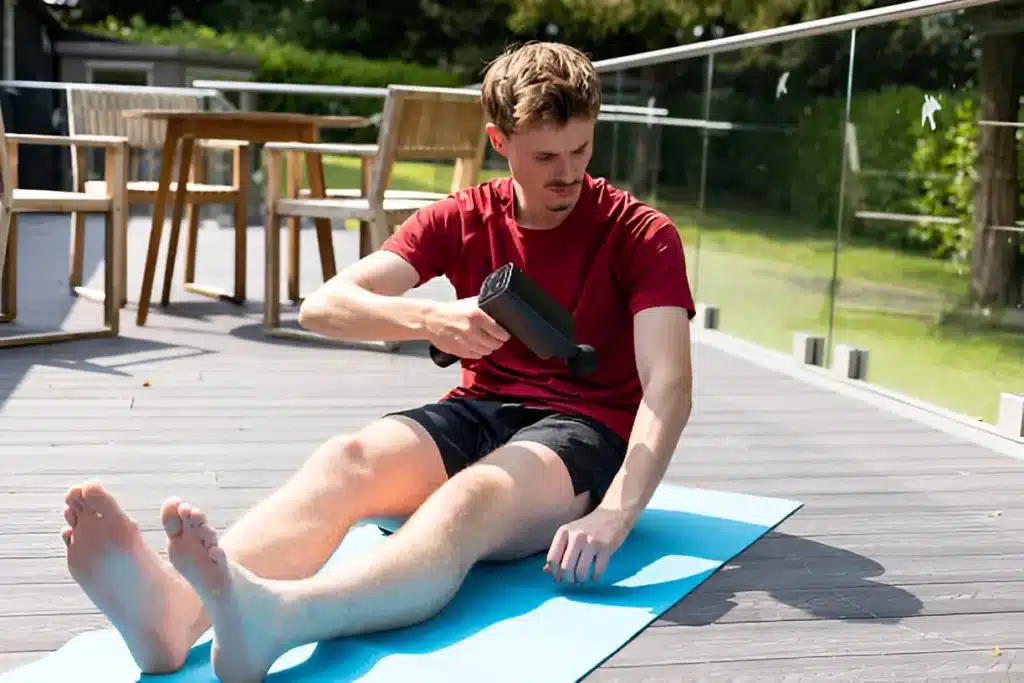Self-care is more than just an occasional bubble bath or treating yourself to something nice. It’s an intentional way of living—one that prioritizes your physical health, mental well-being, and sense of balance in daily life. In today’s fast-paced world, many of us are juggling careers, relationships, and personal goals while trying to keep stress at bay. Without a strong self-care routine, it’s easy to feel burned out, anxious, or disconnected from our bodies.
The good news is that self-care isn’t complicated. By incorporating fitness, mental health practices, massage, and meditation into your weekly rhythm, you can build a sustainable lifestyle that nourishes both body and mind. Whether you’re starting from scratch or simply want to elevate your current habits, here are practical ways to up your self-care routine.
1. Fitness: Movement That Works for You
When most people think of self-care, exercise isn’t the first thing that comes to mind—but it should be. Regular physical activity doesn’t just tone muscles or improve cardiovascular health; it also reduces stress, boosts mood, and sharpens focus. The key is to choose movement that feels good and is realistic for your schedule.
- Start Small: You don’t need a gym membership or two-hour workouts to reap the benefits. Even 20 minutes of brisk walking, cycling, or bodyweight exercises a few times per week can make a difference.
- Mix It Up: Variety keeps fitness engaging. Alternate between cardio, strength training, and flexibility exercises. Try yoga on Mondays, a jog on Wednesdays, and a bodyweight circuit on Fridays.
- Listen to Your Body: Pushing through pain or exhaustion isn’t self-care—it’s self-sabotage. Learn the difference between challenge and strain, and give yourself permission to rest.
- Find Accountability: Joining a class, signing up for a local 5K, or working out with a friend can help you stay motivated.
When exercise becomes a regular part of your routine, you’ll notice not just physical improvements but also a steady lift in mood and confidence. Fitness is a foundation for everything else in your self-care practice.
2. Mental Health: Building Emotional Resilience
Self-care isn’t only about the body—it’s also about nurturing the mind. Mental health practices help you manage stress, regulate emotions, and build resilience when life throws challenges your way.
- Daily Check-Ins: Take a few minutes each morning or evening to ask yourself, How am I feeling? What do I need today? Journaling can help make this a concrete habit.
- Set Boundaries: One of the most overlooked aspects of mental self-care is learning to say no. Protect your energy by setting limits on social, work, and digital commitments.
- Therapy and Counseling: Talking with a professional can provide tools to manage stress, anxiety, or depression. Therapy is not just for crisis—it’s for growth.
- Nourishing Activities: Read a book, cook a healthy meal, spend time in nature, or listen to music that uplifts you. These small acts refill your emotional reserves.
Remember, mental health is a continuum. Some days you’ll feel strong and centered; other days you may feel depleted. That’s normal. What matters is building consistent habits that bring you back to balance more quickly.
3. Massage: Restoring the Body, Refreshing the Mind
Massage isn’t just a luxury reserved for special occasions—it’s a proven way to support physical and mental health. Studies show that massage therapy can reduce muscle tension, improve circulation, lower stress hormones, and even enhance sleep.
If you’re in Southern California, you’ll find many professional options for massage in Los Angeles. From wellness centers to private practitioners, the city offers everything from Swedish and deep tissue to sports massage. For those seeking a supportive environment within the a diverse and inclusive community, you may also explore services from a male masseur in Los Angeles who will make you feel at home.
You don’t need weekly appointments to see the benefits. Even a monthly massage can:
- Release chronic tension built up from desk work or workouts
- Support athletic recovery by increasing blood flow to muscles
- Reduce anxiety and promote relaxation through calming touch
- Encourage better posture and body awareness
If professional massage isn’t accessible all the time, try self-massage techniques or use tools like foam rollers and massage balls at home. Building massage into your self-care plan reminds you that rest and restoration are just as important as activity and productivity.
4. Meditation: Training the Mind to Rest
Meditation is one of the most effective ways to quiet the mind, manage stress, and cultivate inner calm. Just like fitness strengthens the body, meditation strengthens the mind’s ability to stay focused and present.
- Start Simple: You don’t need to sit for an hour in silence. Begin with 5 minutes of guided meditation using an app or online video.
- Breath Awareness: Focus on the natural rhythm of your breath. Whenever your mind wanders (and it will), gently bring it back.
- Body Scans: Move your attention slowly through different parts of the body, noticing sensations without judgment.
- Mantra Practice: Repeating a calming phrase or affirmation can help anchor the mind. Examples: “I am at peace,” or “I am grounded.”
The beauty of meditation is that it builds cumulative benefits. Over time, regular practice reduces reactivity, improves focus, and increases your capacity to meet challenges with calm clarity.
5. Integrating the Four Pillars
The magic happens when you combine fitness, mental health practices, massage, and meditation into one cohesive self-care routine. These pillars don’t exist in isolation—they support and amplify each other.
- After a workout, a few minutes of meditation can deepen relaxation.
- Regular massage can ease the physical effects of stress, which in turn supports better mental health.
- Fitness boosts mood, which makes it easier to stay consistent with meditation and emotional check-ins.
Start small by picking one habit in each category. For example:
- Go for a 20-minute walk three times a week
- Write in a journal twice a week
- Book one massage a month
- Meditate for 5 minutes daily
As these become second nature, layer in more practices. Think of self-care not as a chore but as a way to honor yourself.
Conclusion: A Lifestyle of Care
Self-care is not indulgent—it’s essential. In a world that constantly demands your time, energy, and attention, prioritizing your own well-being is an act of strength. By weaving fitness, mental health practices, massage, and meditation into your lifestyle, you create a balanced foundation that supports you through life’s highs and lows.
The journey to a stronger self-care routine doesn’t have to be overwhelming. Start with small steps, stay consistent, and remember that this is not about perfection—it’s about progress. The reward is a healthier body, a calmer mind, and a life that feels more aligned, intentional, and fulfilling.
Also read
- How Electronic Health Records Reduce Medical Errors
- Smart Hospitals: The Role of AI and IoT in Modern Healthcare
- Navigating the Future of Healthcare: The Role of a Medical Recruitment Agency







